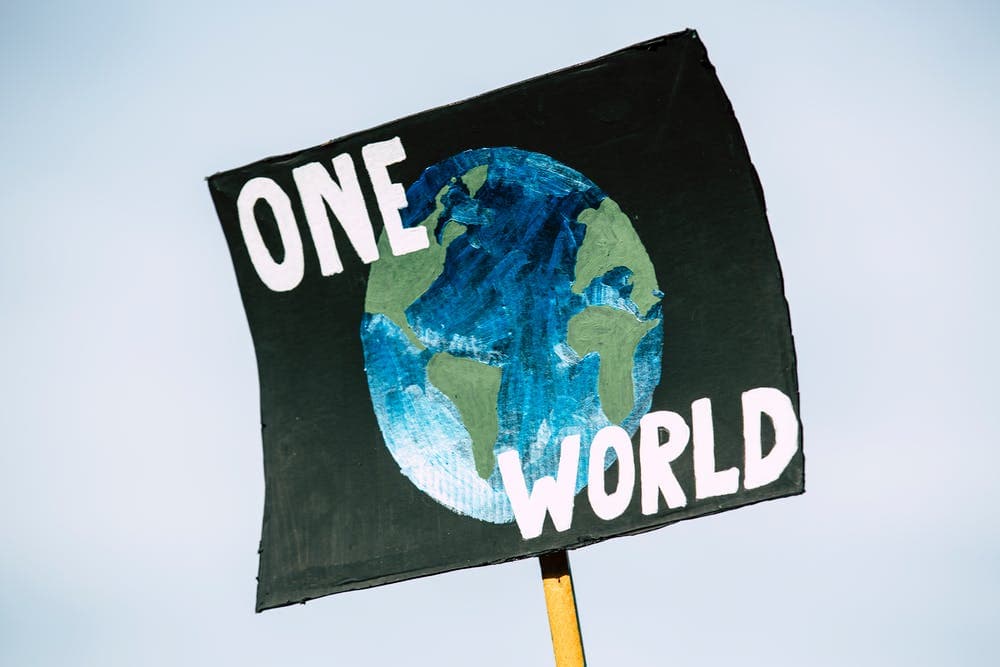Author: Katherine Young, mindhamok wellness coach
Joseph Campbell, author and professor, wrote “The moment you sign up for life you sign up for suffering, but we have the capacity to participate joyfully in the sorrows of the world. We have the courage to do the inner work, and bring the best of us to the worst of it, to the most challenging and horrific suffering.”
So, how do we participate joyfully amidst the sorrows? How do we bring the best of us to what feels like heavy and horrible situations? Let’s explore.
It’s worth noting that sometimes when we are away from family, friends and our normal context and routine, events that happen can feel out of proportion to what we are used to. For example, if you are sick at home, you seek out friends, parents, your doctor, the school health facility. You know what to do and where to go. When you are away from home and farther away from that which is familiar, the process of what to do when you are sick is new and this for some can cause added stress, a stress that you are not necessarily used to. Likewise, when big world events happen, like the war in Ukraine, the same thing can happen. Your sense of security may feel undermined because you are away from what is familiar.
First: Too much stress and anxiety limit our access to our own flow, creativity and compassion; it puts our minds in a freeze, or as a teacher used to say, “makes us stupid”. So, clear conscious steps to support calm in your nervous system are important. This care of yourself leaves you in a stronger place to be and act in the ways that align with your values, to be your most dynamic, loving, active self in the world, and ultimately, participate joyfully in the sorrows of the world.
Second, as you experience this current situation think about the ‘position’ that you take in relation to it. Consider the approach of having one foot ‘inside’, fully immersed and engaged – and at the same time having the other foot ‘very slightly outside’. It’s like being ‘in it’ – without losing yourself ‘in it’. You can do this by being curious and taking an interest in what’s happening to you and those around you – moods, concerns, thoughts, feelings, sensations. Recognize them as ‘normal reactions to this abnormal event’. Take comfort in the fact that you don’t actually have to ‘do anything’ in particular with whatever you’re noticing beyond acknowledging it and being curious about it. If you feel like it, write about it or talk to others. If you don’t, that’s fine too.
Third, if you are noticing increased stress or anxiety, remember to do the normal things that you do to take care of yourself. You might right now take a few breaths, look around and notice and name what you see and hear. This simple pause anchors you where you are physically and thus in the present moment. Recharge your batteries with activities that help you to transform or ‘defuse’ your stress: movement of some sort, walking, sports, reading, hanging out with friends, dancing, doing art, meditating – whatever it takes to unplug from all that’s going on around you.
Fourth, remember that the way news travels and the moment by moment access we have to developing events can cause a sense of overwhelm, so make it a point to NOT tune into this but rather to get the necessary facts you need. When such events occur, there can be an understandable impulse to read and watch as much as you can. Notice how this impacts you. If it is increasing your worry, making it challenging to handle your day-to-day life, try giving yourself specific periods of time to get your news, likely not at night before sleep. It’s important to keep abreast of what’s happening, at the same time choosing when and how to do so is also important. You could try choosing one or two sources and allow yourself to update once or twice a day, giving yourself a time limit for each.
Even if sharing information about what’s going on is helpful, talking about any subject over and over again becomes stressful. Think about your interests, hobbies, other areas of interest in your life and make a concerted effort to talk about these too in order to avoid ‘feeding stress and anxiety’.
Fifth, (for those of you far away from home) remember that your loved ones may feel more uncomfortable with you being far away as well. Distance does this to us. It is natural to want to be with loved ones and in familiar places when something that seems frightening or unknown is happening.
Sixth: Don’t forget your sense of humor…however dark! Be sensitive around others of course; at the same time remember that a good laugh can be as cathartic as any good cry and either and/or both are fine.
Seventh: Remember that when stressed we often find ourselves talking in an aggressive, or confrontational way, as though our underlying irritation ‘takes the lead’. Notice when this is happening to you and take a break. Try to focus on making your communication clear and to the point. Are you generalizing? catastrophizing? Try to stop using the words ‘always’ and ‘never’ and see if you notice a difference.
Eighth: Stay inspired. Who or what do you turn to when you seek inspiration? We all need to find our grounding in something that is bigger than we are and in people we love and care about, in order to stay connected to the light in the midst of darkness, and build our capacity to participate joyfully in the sorrows of the world.
Don’t hesitate to reach out if you have questions or need more information. We here at mindhamok are with you on your journey, supporting you as you cultivate your own unique “hamok” of well-being and growth.



